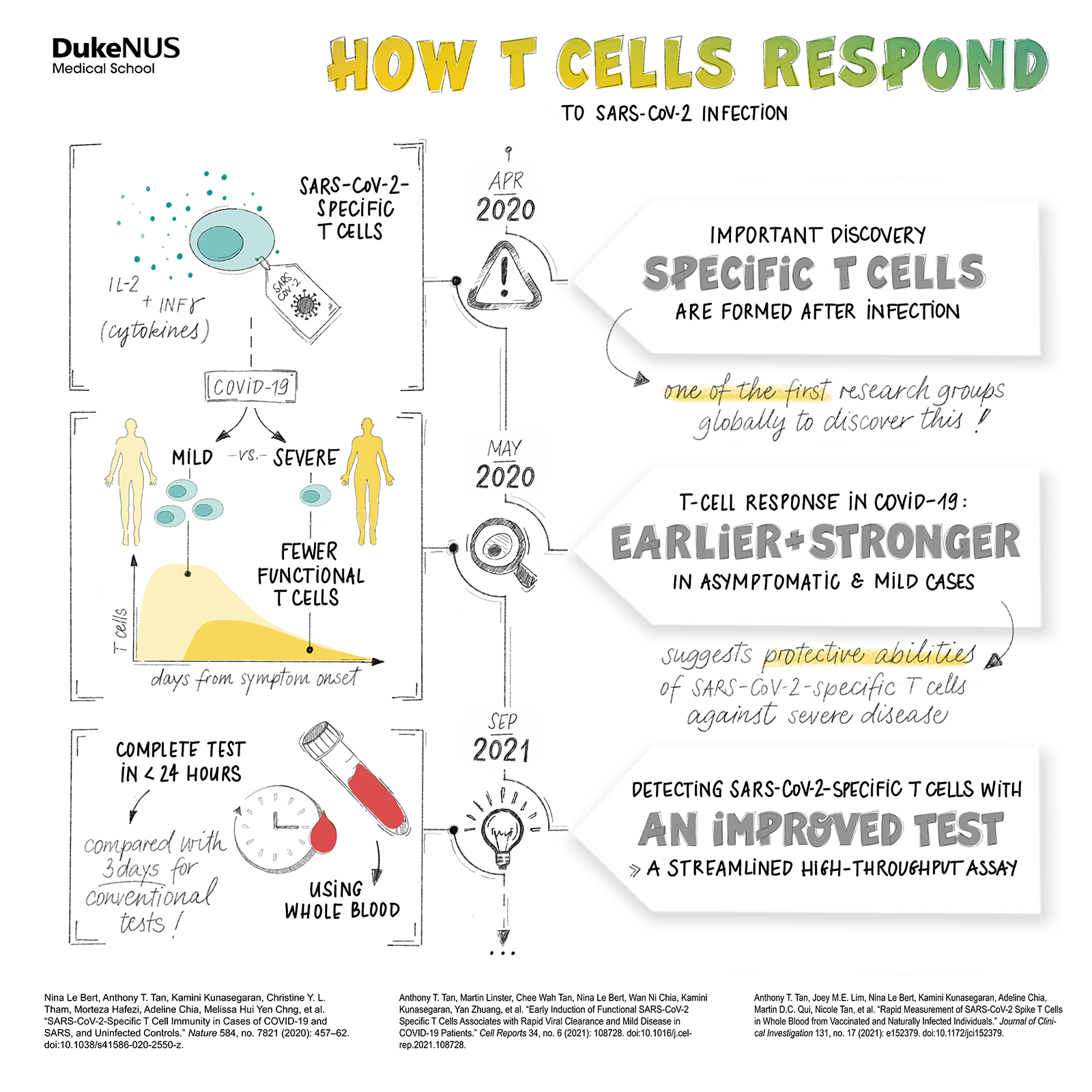For the longest time, the study of T cells remained the domain of specialist research laboratories like Professor Antonio Bertoletti’s lab at Duke-NUS. With an acute frontline need for a full picture of the body’s immune response to SARS-CoV-2 infection and vaccination, Bertoletti and his team developed a simple and rapid method to measure the T-cell immune response to SARS-CoV-2.
Their discovery, published in The Journal of Clinical Investigation, applied the principle of monitoring T cells by proxy that is used in the diagnosis of diseases like tuberculosis. When the researchers added small fragments of the SARS-CoV-2 spike protein to the blood from people who had been vaccinated against or recovered from SARS-CoV-2, the T cells in the sample released signalling molecules called cytokines that could easily be detected.
Building on that, they showed that the test, called a cytokine release assay, could reliably identify and quantify specific T cells in these samples. This test, then, not only shed light on the presence of T cells. It could also determine their functionality against SARS-CoV-2.

ANTONIO BERTOLETTI AND HIS TEAM'S WORK ON T CELLS LED TO THE DEVELOPMENT OF A TEST THAT CAN RELIABLY DETECT SARS-COV-2-SPECIFIC T CELLS, A FIRST STEP TO MORE LARGE AND RAPID T-CELL STUDIES
Validated using blood from more than 200 patients who were recruited with the help of the team’s clinical partners at Singapore General Hospital, National University Hospital and the National Centre for Infectious Diseases, this discovery offers a simple, fast and accurate test — well-suited for routine and large-scale measurements.
“This discovery allows a rapid and large-scale expansion of studies to track T-cell activity across the world, while not requiring specialised or expensive equipment,” emphasised Bertoletti, the study’s corresponding author, at the time the paper was published.
“The study results confirm that the level of antibodies against SARS-CoV-2 in blood samples does not always correlate with the T-cell response. With this rapid test, we can help define the correlates of protection from T cells and antibodies for the development of COVID-19 vaccines.”
To bring this discovery to clinics around the world, Duke-NUS licensed the assay to Hyris, an innovation-based biotechnology company.